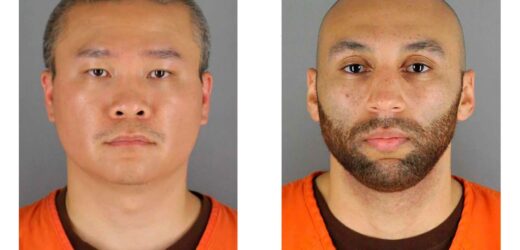Former Minneapolis police officers J. Alexander Kueng and Tou Thao were each sentenced to several years in prison after being found guilty on federal charges tied to the death of George Floyd, ABC News reports.
Kueng and Thao, along with Thomas Lane, were all found guilty of depriving Floyd of medical care while Derek Chauvin murdered Floyd by kneeling on his back for over nine minutes. Thao and Kueng were also found guilty on additional charges of failing to intervene against Chauvin; Lane was spared this charge and testified that he twice tried, but failed, to get Chauvin to reposition Floyd.
Kueng, who was new to the police force at the time of Floyd’s murder, was sentenced to three years in federal prison, with two years of supervised release. In a separate hearing, Thao — a nine-year veteran of the Minneapolis PD at the time — was sentenced to three-and-a-half years in prison, plus two years of supervised release.
Related Stories
Ex-Minneapolis Cop Sentenced to 30 Months in Prison for George Floyd's Death
Derek Chauvin Sentenced to 21 Years for Violating George Floyd's Federal Civil Rights
Related Stories

Elvis Presley: His 10 Best Country Songs
5 Festivals That Ended in Disaster
Lawyers for Kueng and Thao did not immediately return Rolling Stone’s requests for comment.
Thao and Kueng’s sentences were handed down one week after Lane was sentenced to two-and-a-half years in prison. While Lane was also convicted on the federal charges, he ended up pleading guilty to state charges of aiding and abetting second-degree manslaughter. As part of the plea deal, he will be allowed to serve his state and federal sentences concurrently at a federal institution.
Both Thao and Kueng still need to stand trial on state charges of aiding and abetting second-degree manslaughter and murder. The trial was originally set to begin in June, but the judge overseeing the case decided to push it until January 2023. That decision was made in light of Lane’s plea deal and the federal convictions from February, with the judge believing those events — and the publicity surrounding them — could make it hard for a jury to approach the case fairly.
Source: Read Full Article

